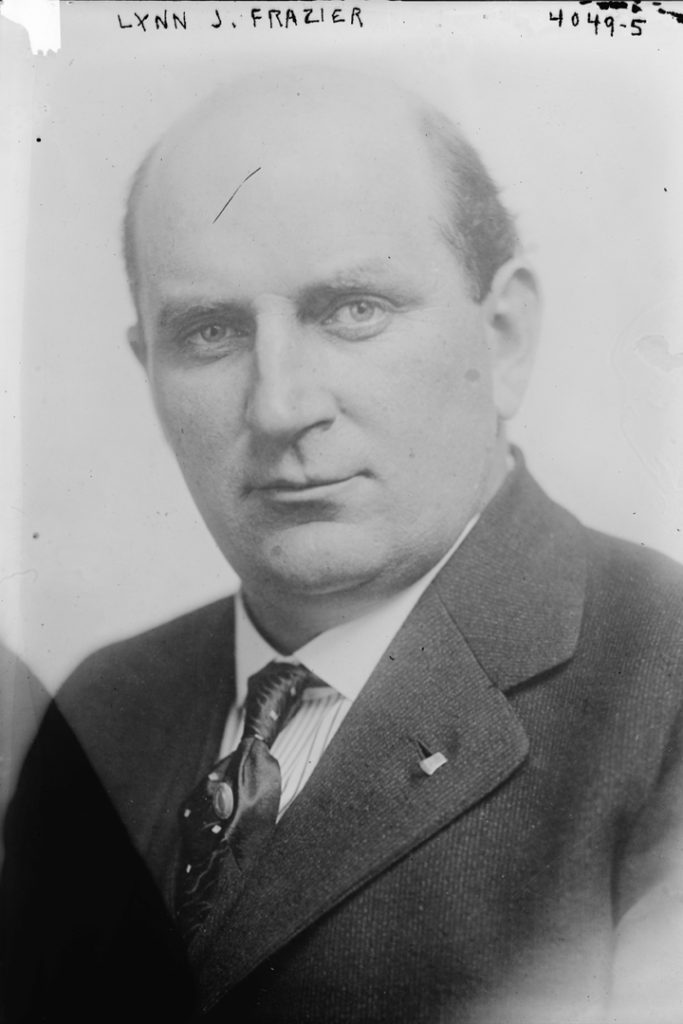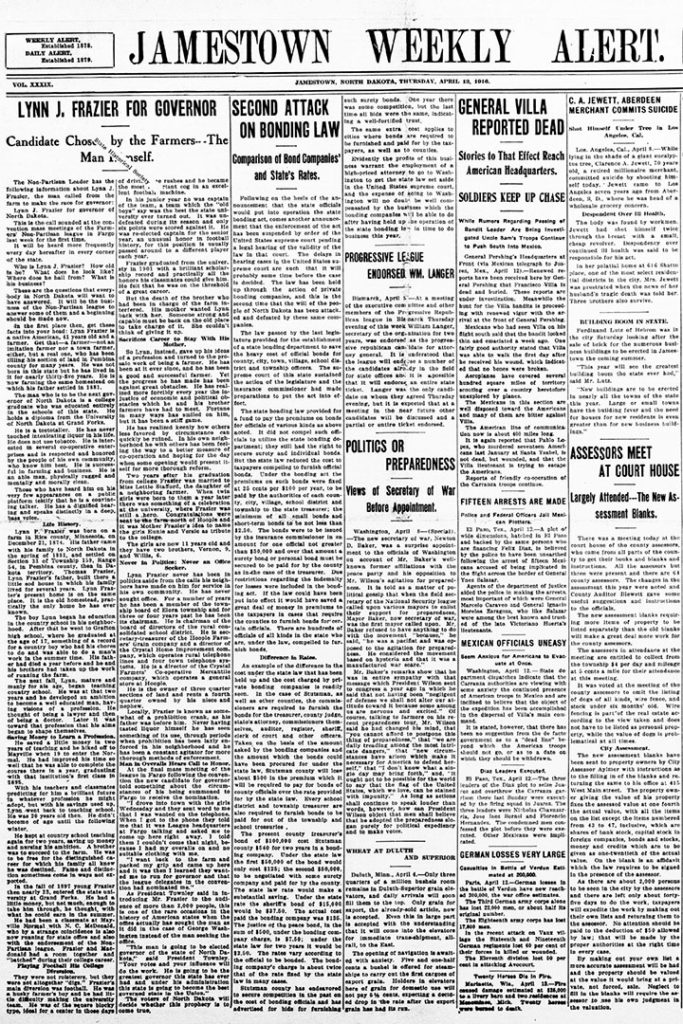
Lynn J. Frazier (1874-1947) was a farmer at Hoople, North Dakota, in Pembina County. Educated at the University of North Dakota, Frazier had never intended to take over the family farm, but the early deaths of his father and brother forced his hand. He had planned to be a doctor. He had taken on a few civic responsibilities in Hoople, including the school board.
When he was “called from the plow” as North Dakota’s Cincinnatus in 1916, he was regarded by the League’s leadership, particularly William L. Lemke, as the ideal candidate for Governor. He was an uncomplicated man who spoke humbly and in short utterances. Bald, stout and plainly dressed, there was nothing flashy or even “professional” about him.
Frazier was a perfect candidate. He neither smoked nor drank. He had no ambition to seek office. The office sought the man. He was so grateful for his education at University of North Dakota that he named his twin daughters Unie and Versie. He used no off-color language. When the call came to him that he had been nominated for the governorship, he apologized that he could not come immediately because he was wearing his overalls.
The League wanted to present itself as the pure expression of discontent among North Dakota’s 80,000 farmers. It did not want to be seen as a politically sophisticated protest movement. Frazier, therefore, was the ideal embodiment of the League’s “innocence.” When he was selected, a flabbergasted North Dakota newspaper wrote, “Who the Hell is Frazier, and Where in Hell is Hoople?”

Frazier’s fundamental decency and personal conservativeness – he was a teetotaler and a prohibitionist who regarded dancing as sinful – made farmers skeptical of the charge that the League consisted of “a bunch of radicals,” Bolshevists, and free lovers. Frazier was the least “Bolshevist” farmer in America.
One observer wrote, “Frazier is a ruddy-cheeked, broad-shouldered, quiet, plain-spoken man, a purely American product who came up from the sod house and the pioneer’s hardships and you can tell by looking at him that he is as clean as a hound’s tooth.”
Frazier brought credibility to the Nonpartisan League because he was so clearly not a professional politician. His blunt, plain-spoken, and humble manner impressed everyone but profession politicians, which was precisely the point of his nomination!
The Bowman Citizen concluded: “After listening to Mr. Frazier speak one cannot help but feel that, in choosing him to head the ticket, the farmers of this state must have been inspired, for it would have been impossible to have found another man, farmer or otherwise, with a combination of qualities that would have better fitted him for the leadership of a great agricultural state.”
As governor, he was quoted in the May 16, 1920 issue of New York Times Magazine, “In my estimation, that which we have started in North Dakota is the one hope of putting the government of the various states of the nation into the hands of the people … This change can be brought about in a true American manner by the use of the Non-Partisan ballot.”

